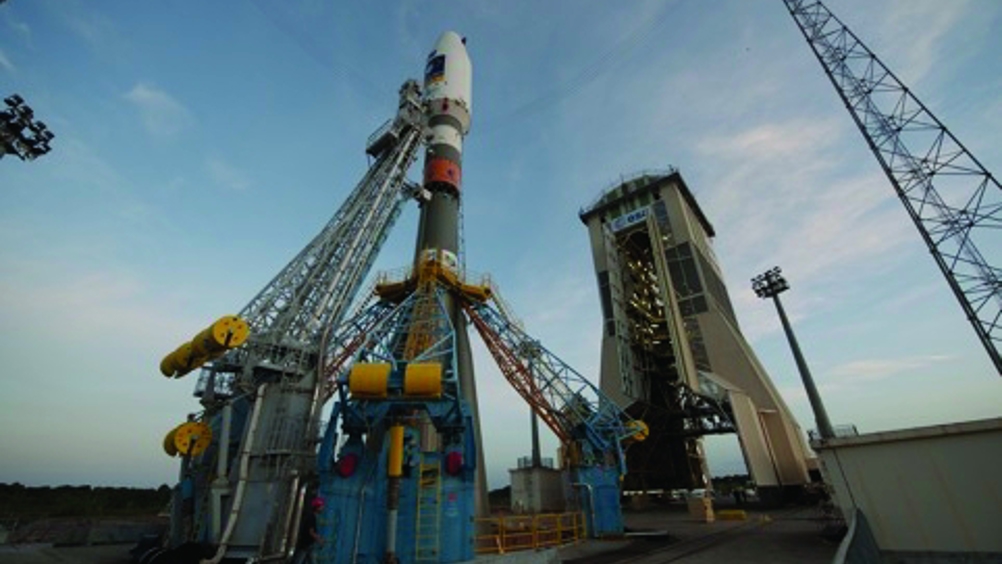Rocket carrying Galileo satellite takes off following delays
The rocket carrying the first two Galileo satellites — which will form part of Europe’s version of GPS — has now been successfully launched from French Guiana.

The mission, scheduled for launch yesterday, was delayed owing to a fuel leak. There were fears that the entire launch process might have to start again if the ground team was unable to prepare the Soyuz rocket in time to meet this morning’s launch window.
However, the rocket departed the Spaceport’s new ELS launch complex at 07:30 local time in French Guiana (12:30 CEST). It will fly for around three hours and 49 minutes, with the separation phase expected at around 16:20 CEST.
With a total payload of 1,580kg, including 700kg for each of the Galileo platforms, the Soyuz rocket is set to deliver the satellites into a 23,222km circular medium-Earth orbit, inclined at 54.7°.
‘The successful launch of two Galileo satellites will start building the initial operational capability of Galileo, which is scheduled for the middle of the decade,’ said Dr Martyn Thomas, an expert on global navigation satellite systems for the Royal Academy of Engineering.
Register now to continue reading
Thanks for visiting The Engineer. You’ve now reached your monthly limit of news stories. Register for free to unlock unlimited access to all of our news coverage, as well as premium content including opinion, in-depth features and special reports.
Benefits of registering
-
In-depth insights and coverage of key emerging trends
-
Unrestricted access to special reports throughout the year
-
Daily technology news delivered straight to your inbox










National Gas receives funding to develop Gravitricity underground hydrogen storage system
One single rock salt mine - Winsford - has 23 <i>MILLION </i>cubic metres of void and even allowing for 10% of that void set aside for hazardous waste...